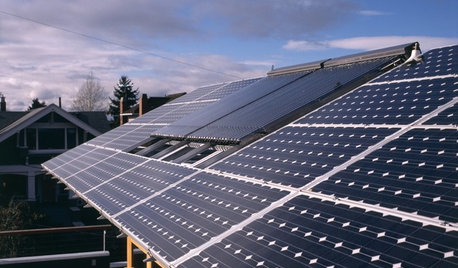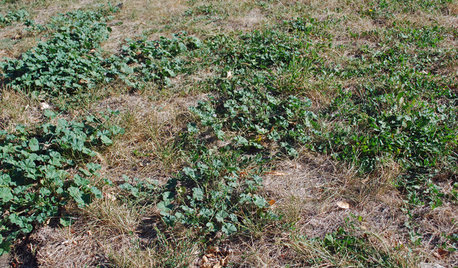Let's say you HAD to use some kind of herbicide.....
pbl_ge
11 years ago
Related Stories

GREEN BUILDINGLet’s Clear Up Some Confusion About Solar Panels
Different panel types do different things. If you want solar energy for your home, get the basics here first
Full Story
GARDENING GUIDESWeed War: When and How to Use Chemical Herbicides
Before you spray, arm yourself with knowledge about which weed killers — natural or synthetic — are right for your yard
Full Story
STUDIOS AND WORKSHOPS8 Rooms That Say 'Let's Make Something'
Stock up on ideas for craft room storage and workspaces from deluxe home workshops
Full Story
LANDSCAPE DESIGNLet's Revisit Some Revolutionary Garden Thinking
One book changed the vision of postwar British garden design forever. See how it's influencing your garden today
Full Story
PAINTINGBulletproof Decorating: How to Pick the Right Kind of Paint
Choose a paint with some heft and a little sheen for walls and ceilings with long-lasting good looks. Here are some getting-started tips
Full Story
THE ART OF ARCHITECTUREKnow Your House: What Kind of Roof Do You Have?
Gable, hip, gambrel, mansard — the shape of your roof says something about your home’s connection to earth and sky
Full Story
KITCHEN DESIGNPopular Cabinet Door Styles for Kitchens of All Kinds
Let our mini guide help you choose the right kitchen door style
Full Story
DECORATING GUIDESBudget Decorator: Let’s Go Thrifting
Dip into the treasure trove of secondhand pieces for decor that shows your resourcefulness as much as your personality
Full Story
MOST POPULARHouzz TV: Let’s Go Island Hopping
Sit back and enjoy a little design daydreaming: 89 kitchen islands, with at least one for every style
Full Story
LIFE10 Steps for Saying Goodbye to Sentimental Objects
Are keepsakes cluttering your space and your life? Consider this approach for letting go and moving on
Full Story






User
RpR_
Related Professionals
Montgomeryville Landscape Architects & Landscape Designers · Roosevelt Landscape Architects & Landscape Designers · Billerica Landscape Contractors · Gaithersburg Landscape Contractors · Golden Gate Landscape Contractors · Lake Zurich Landscape Contractors · Peachtree City Landscape Contractors · Rochester Landscape Contractors · Smyrna Landscape Contractors · Stony Brook Landscape Contractors · Tuscaloosa Landscape Contractors · Wallingford Landscape Contractors · Boone Decks, Patios & Outdoor Enclosures · Overland Park Decks, Patios & Outdoor Enclosures · Parlier Decks, Patios & Outdoor Enclosurespbl_geOriginal Author
RpR_
jolj
Kimmsr
msbumble
gribbleton
pbl_geOriginal Author
gribbleton
User
RpR_
pbl_geOriginal Author
gribbleton
pbl_geOriginal Author
User
gribbleton
User
terrene
Slimy_Okra
gribbleton
strouper2
jolj
rhizo_1 (North AL) zone 7
buford
rosiew
pbl_geOriginal Author
terrene